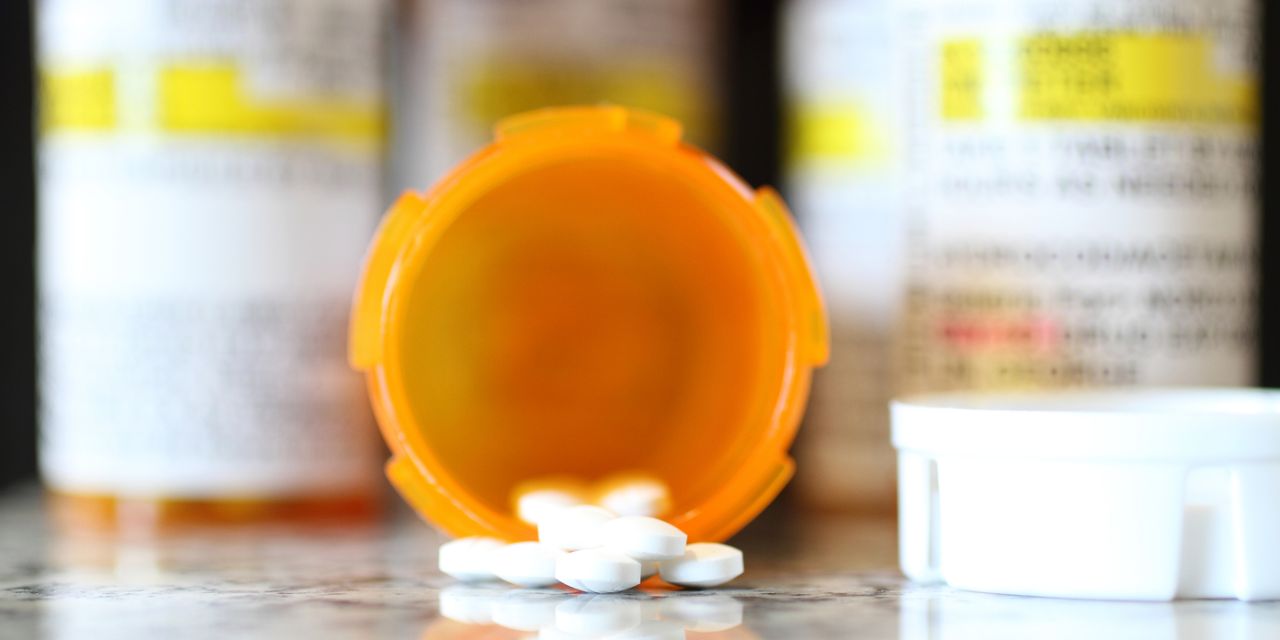Pfizer
has picked the pill with which it plans to go after the new obesity-drug market being pioneered by
Eli Lilly
and
Novo Nordisk,
but it may not have been the treatment investors were hoping for.
Pfizer stock (ticker: PFE) was 4.8% lower by mid morning on Monday, while the
S&P 500
was 0.2% higher.
Obesity treatments from Lilly (ticker: LLY) and Novo (NVO) have gripped the attention of investors and the general public in recent months. Lilly stock has taken off, making the company the largest in the sector with a market capitalization of more than $430 billion, in response to the possibility that Mounjaro, a shot that treats diabetes and obesity, might become a megablockbuster.
Pfizer has been touting an oral alternative to Lilly and Novo’s injections. Its plan had been to develop two pills in tandem, one called lotiglipron and the other called danuglipron, and then pick the best one to move into late-stage trials. Both pills are of the type known as GLP-1 receptor agonists, and were being tested as treatments for obesity and Type 2 diabetes.
On Monday, Pfizer said it had picked danuglipron, and would drop lotiglipron. The slide in the stock price might have been because lotiglipron, the canceled drug, was a once-daily pill, while danuglipron is taken twice daily. Pfizer said in its statement that it is developing a once-daily version of danuglipron.
If approved, Pfizer’s danuglipron is likely to face off against a number of similar once-daily pills. Lilly’s oral obesity pill orforglipron, which showed promising results in a study published last week in the New England Journal of Medicine, is taken once a day. A high-dose weight-loss pill under development from Novo is also taken once daily. And the biotech
Structure Therapeutics
(GPCR) is testing a once-daily GLP-1 called GSBR-1290.
Pfizer cited potential safety issues for its decision to end the lotiglipron program. The company said that some participants in a Phase 2 study of lotiglipron had elevated levels of liver enzymes, though none of them reported related liver symptoms or needed treatment. The company hasn’t seen elevated liver enzymes in patients who received danuglipron.
“This morning’s announcement is incrementally negative for perception of PFE’s GLP-1 program, and it is positive for perception of competitors,” wrote SVB Securities analyst David Risinger in a Monday note. Lilly shares were up 0.8% on Monday, while Structure’s American depositary receipts were up 3.9%.
Still, it isn’t a certainty that Pfizer will lose out in the race to treat obesity. Danuglipron, the pill Pfizer is continuing to develop, is the subject of a continuing Phase 2 trial, and Pfizer says its efficacy might eventually differentiate it from the competitors.
“If successful in clinical trials and approved, danuglipron could be in a prime position to differentiate based on profile, including full receptor agonism, which we believe has the potential to translate to robust efficacy,” said William Sessa, senior vice president and chief scientific officer for internal medicine at Pfizer.
Danuglipron’s apparent efficacy has excited investors in the past. Pfizer shares spiked in late May after investors took note of a new publication of a scientific paper outlining the results of a study of danuglipron, though Pfizer had previously summarized the results in September.
The company said it would announce plans for late-stage development of danuglipron by the end of the year.
Write to Josh Nathan-Kazis at [email protected]
Read the full article here



